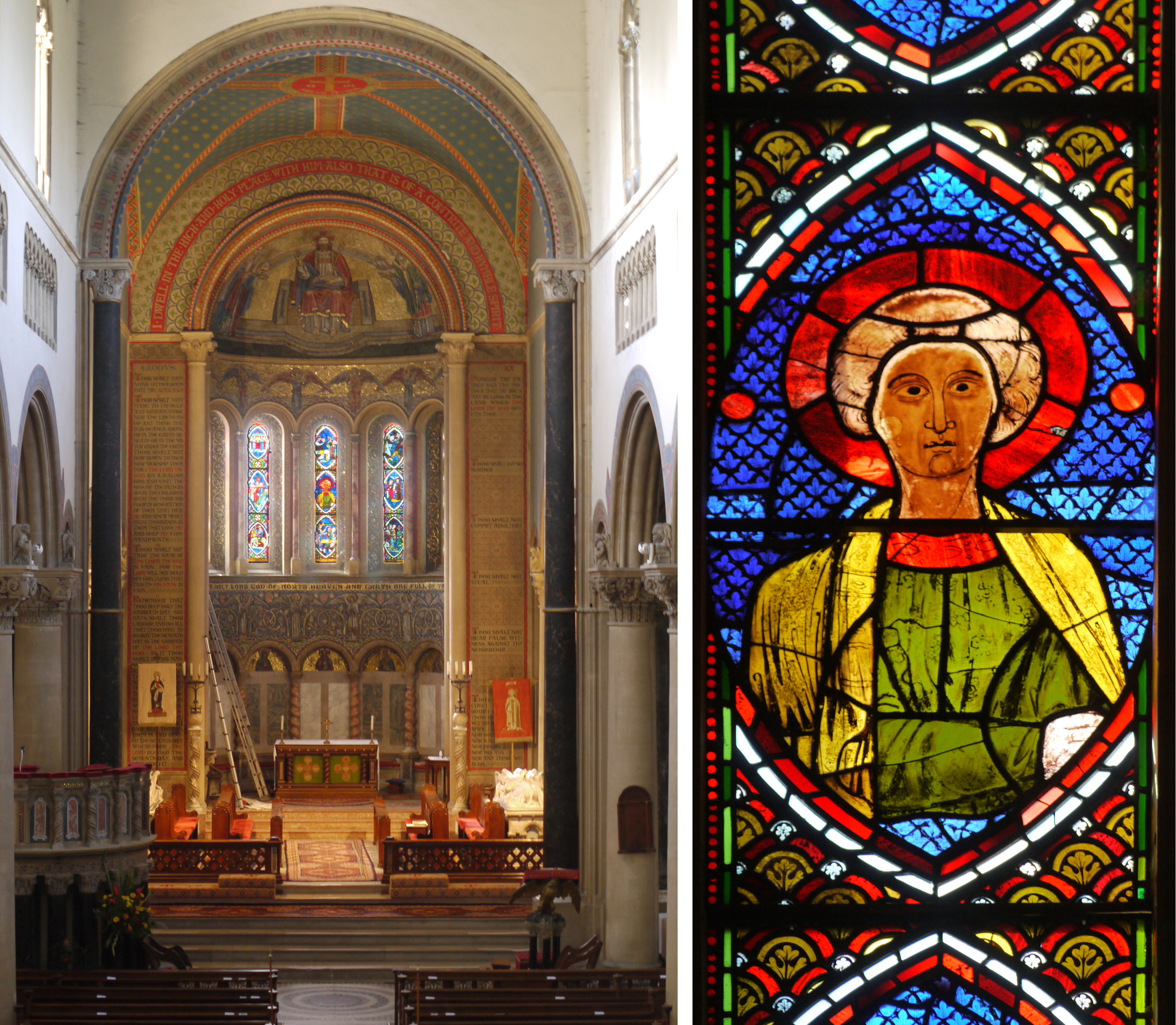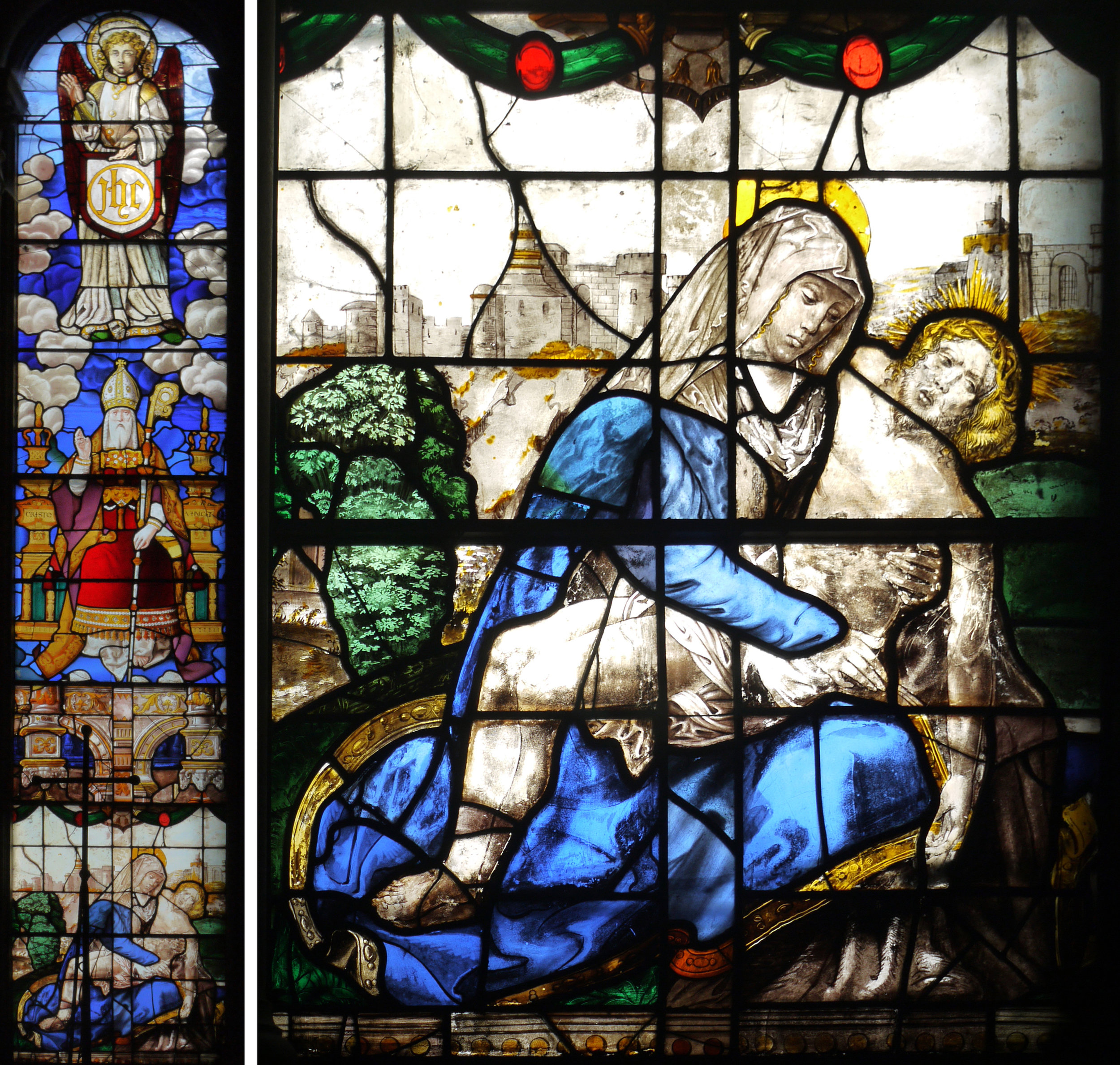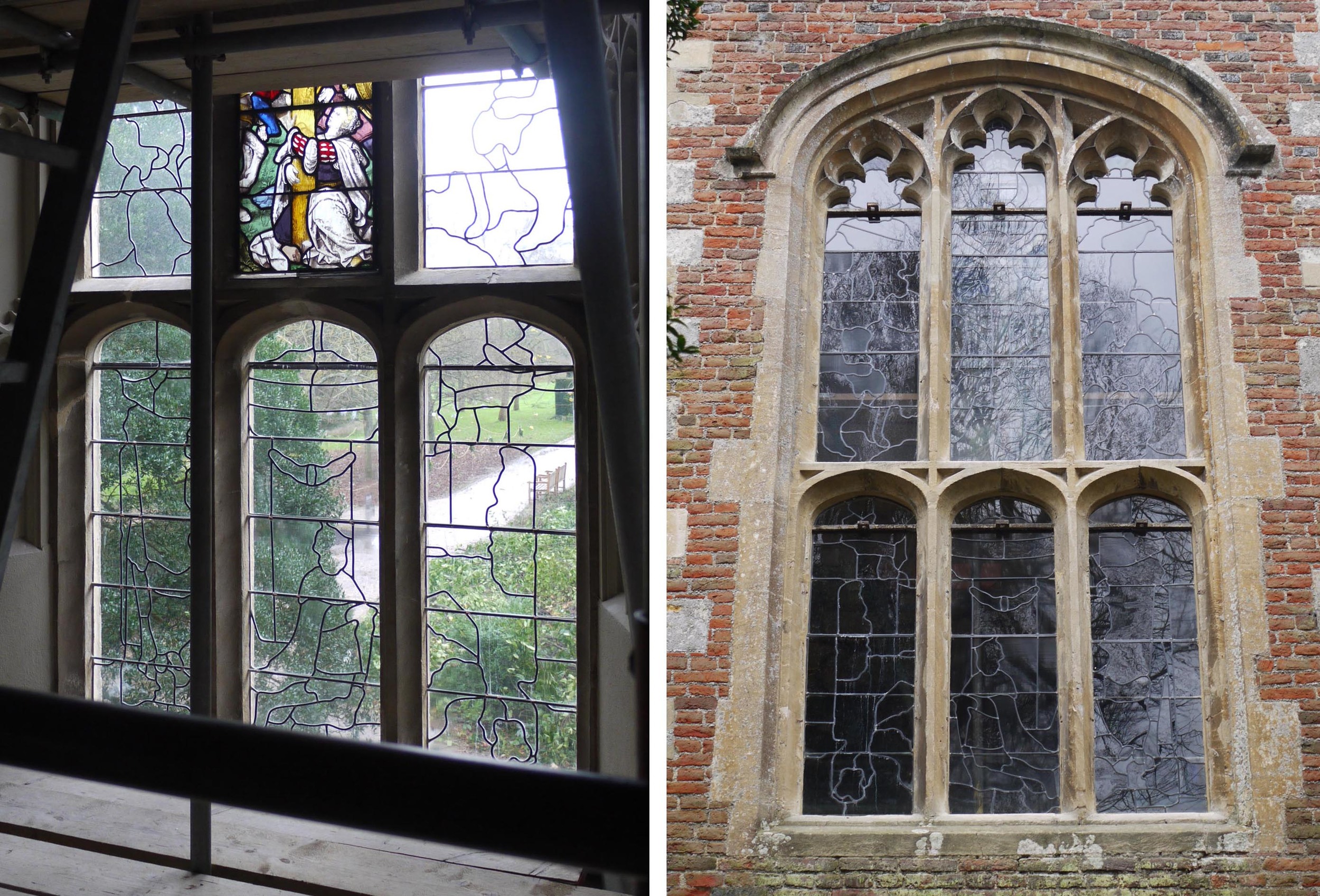Sts. Mary and Nicholas Church, Wilton, showing the three apses. Passage between tower and church.
This is Wiltshire in October, and the unlikely sight of a Romanesque church under a warm blue sky with light streaming through carved columns and ancient stained glass. It was built from 1841-5 by the architects Wyatt & Brandon and contains a collection of 12th - 17th century European stained glass (the best in Wiltshire?) as well as mosaics, marble furnishings, door panels and wall paintings.
Looking from the gallery towards the main apse. Central panel, large late C12th head of a saint
In the seven lights of the main apse (above and below left) are superb 12th and 13th century medallions of French glass, including three from St. Denis, set into 19th century backgrounds and borders. The most striking is the central panel of a large saint's head with beautiful strong colours and painted brush strokes, an amazing focal point for the lavish decoration on surrounding walls, ceiling and floor.
Light through medallions hits a painted wall. Huge wheel window at the opposite end of the church contains a decorative mixture of 16th century Swiss and Austrian glass fragments and heraldic pieces.
Figures from the windows in the small north and south apses.
In the two small apses, either side of the main one, are smaller, ancient figures beautifully arranged and restored. I love the delicate paintwork of the angel and saints (above) - the negative/positive hands in the centre and the pink/yellow combination on the right. Here you can also find saints carrying their own heads (I've found differing opinions on which saints these are) with spectacular spurts of blood from the neck.
Martyred saints carrying their own heads - 16th century Swiss or German glass
A tall narrow window in the south aisle stood out because of its bright colouring, and looked vaguely familiar. The central figure of God the Father was made by Arnold of Nijmegen around 1525 as part of a huge window for the church of the Carmelite Nuns in Antwerp. Other parts of the window are in St. George's Church, Hanover Square, London. In both settings the old glass pieces have been skilfully arranged next to sections of glass from other periods and places - much like the Victorian backgrounds given to the figures and medallions in the apses. These are great example of the historical patchwork you find in many stained glass windows.
South aisle window with figure of God the Father/St. Nicholas above a German panel of the pieta.









